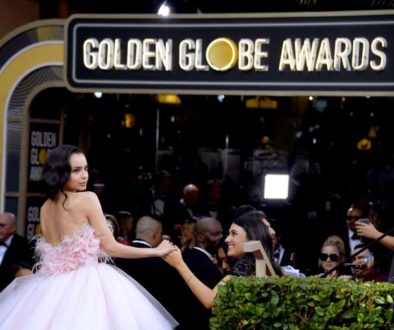B-movies/Byzantium
This week, I had the opportunity to write an editorial essay for Clarkesworld that was meant to be something of a personal take on my approach to movie reviewing, with an undercurrent of, “Because sometimes you like bad movies a lot and you should probably explain that.” I ended up writing a love letter to the wide swath of things that get classified, could be classified, and want to be classified as B-movies, because damn, there is a lot going on under that umbrella. “My Own Private B-Movie” is up now! (And no disrespect to The Warriors, but someday I will write about Streets of Fire, because it deserves something all its own.)
And it is super timely, because this weekend I saw Byzantium.
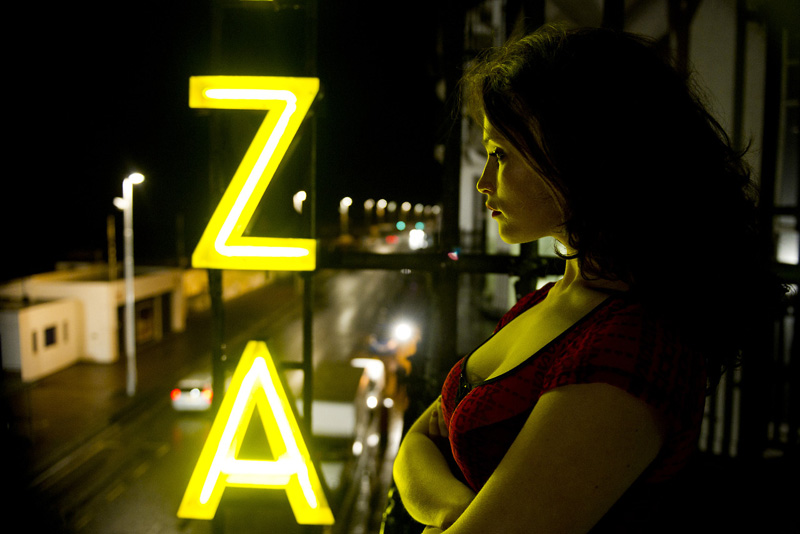
Obviously, Neil Jordan is no stranger to bloodsuckers; he directed Interview with the Vampire, which has become the unexpected but indisputable model for urban vampire films in the nearly two decades since its release. The unabashedly over-the-top adaptation of Anne Rice’s already over-the-top novel about a dysfunctional vampire family walked a number of very fine lines: the line between the necessary pathos and some welcome dark comedy; the line between gore and sex – which, the movie posited, was a fiction to begin with; the line between individuality and mythos; the line between when Brad Pitt, Tom Cruise, and Kirsten Dunst were good actors (during this movie) and when they weren’t (like for a decade after this movie).
In Byzantium, he tries again.
Loosely, this is the story of mother-daughter vampires, living an itinerant existence by their wits. Mother Clara has plenty of ‘em, and plies the sex trade and its accompanying anonymity; daughter Elinor writes backstory in her diary a lot, then tosses it to the wind, because it’s supposed to be a secret. (Huh.) After Clara ends up beheading a creep in their flat, they hit the road, ending up at a seaside town heavy with memories for Elinor. As they shelter with kindhearted Noel in an abandoned guest house (the neon-drenched, faux-Victorian Byzantium of the title), the movie skips back and forth in time – into the past of their deaths and births, and into the present, where those pasts are about to catch up with them as the vampire Brotherhood descends to punish them for existing at all.
Visually captivating, occasionally brutal, occasionally faltering, and studded with great performances, Byzantium lives somewhere between a B-movie and a Glorious Mess.
And oh, it’s a mess. There’s not a plot so much as a series of plot holes stacked vaguely atop one another, and it tries to avoid the salaciousness of a B-movie while also not quite reaching the Baroque heights of careless excess we know Jordan is capable of. This is unfortunate, particularly when Jordan chooses to linger on striking images in the service of questionable plot points, which means at some point you’ll stop being chilled by the unnamed primal demon who forces you to face yourself in order to become vampire, and start to wonder why vampires in the Brotherhood have to pass around a single map of Vampire Island (island not actually named because it would have to be Vampire Island and that’s a bit silly even for Neil Jordan, but it’s Vampire Island) as the magic passport, and as the movie’s way of suggesting a control on the vampire population, when anyone who has been there before could just shove a bunch of his friends in a boat and head out.
However, what’s resonant in this movie is its portrayal of a family on the edge, and its study of misogyny on a mythic scale. All the plot holes in the film are casualties of the thematic precedence.
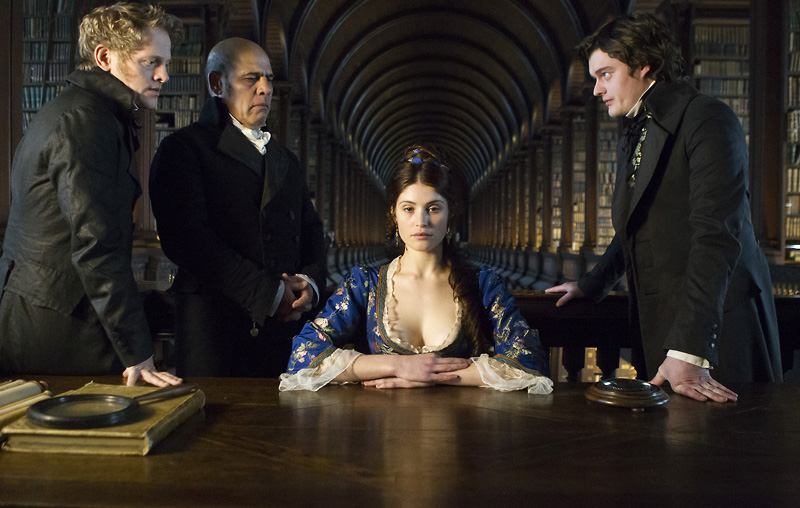
See, Clara first encountered the Brotherhood in a brothel, where the Captain who kidnapped her into prostitution gets a visit from his old friend Darvell. Clara remembers Darvell from when she was taken, as he put up a token protest; the Captain remembers Darvell from when he accompanied Darvell to Vampire Island but got terrified when he saw his friend’s corpse in the grotto and the waterfall turned to blood, so he stole everything off Darvell and made a run for it. (Jonny Lee Miller, unafraid to play this asshole to the second balcony, reverts to actual good acting as the shell of a man who recounts this to the terminally-ill Clara.) That Darvell comes to reward, of all his acquaintance, this particular awful man who stole everything he had, and without another word about it, is one of those plot points where the only propelling logic is that rich white men will forgive anything of “survivors” in order to strengthen their own social coffers. It grates on the movie’s logic in the third act, but damn, argument sustained.
However, if you’re looking for a survivor, Clara’s your pick; she shoots the Captain and hightails it to Vampire Island. Her joy lasts until she gets home, where the Brotherhood informs her that as a woman – and moreover, one low by birth who ‘lowered herself’ further – she has no place amid the secretive elite. When she swears to protect the weak, they explain that’s not even their true purpose, exile her, and warn her never to create. Darvell doesn’t speak in her defense; when she asks him why, he has no answer. (Argument: SUSTAINED.)
It’s of no little significance that the vampire weapon in Byzantium is a nail that lengthens, and that we watch that nail prepare every time they penetrate; it’s no accident that as soon as she emerged from the unspeakable cave, Clara bathed jubilantly in the waterfall of blood. Jordan wants us to be sure we know just why the men are afraid of Clara, and why they should be. Jordan uses the cinematic vocabulary of the sex trade – clothes intended to make men underestimate her – and bathes her in the saturated colors of candlelight, strip clubs, carnivals, neon; she claws life from them all.
Two hundred years later, she’s long since turned her natural daughter Elinor into a vampire (after her rape at the hands of a vengeful, crippled Captain who’s summarily executed by Clara), and kept them one step ahead of human law and the Brotherhood’s revenge, but Clara is no prey; when the Brotherhood man catches up with her, she convinces him to come home with her, where he buys her apologetic lower-class sex-kitten scraping just long enough to get his head severed. Then she douses him in gasoline and lights the entire flat on fire on her way out. Clara’s the Over It Vampire of Fuck-You-Dude Bay.
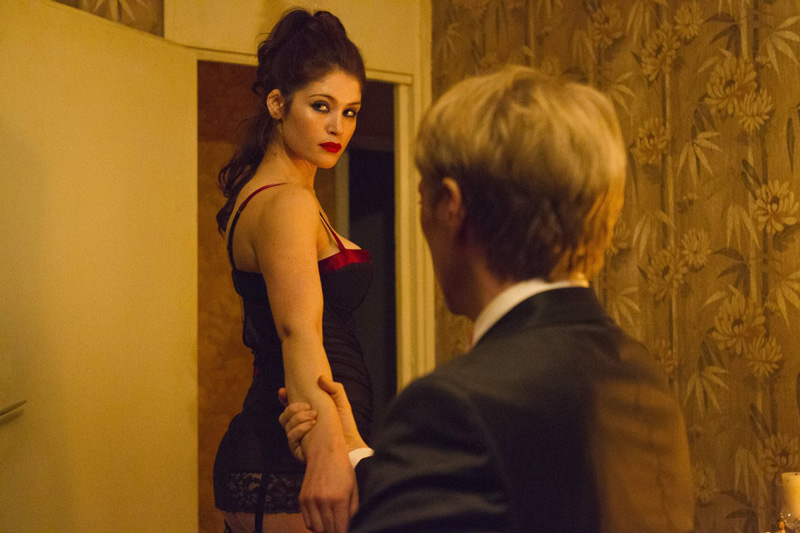
Elinor’s a different matter. A childhood in an orphanage left her introspective and myopic; she feeds only on the old and the sick who wish to die, looks down on her mother, and is desperate to tell her secret. Despite a palpable bond (Gemma Arterton and Saoirse Ronan have pitch-perfect shorthand conversations – “Don’t.” “I won’t.”), there’s a fundamental disconnect only revealed in pieces, until it’s made clear that, apparently to protect Elinor, Clara never told her about the Brotherhood, and she assumes she and her mother are the only vampires alive. (The theme of “lies we tell our children” is meant to eclipse the question of whether a kid on the run from a sword-wielding death squad should maybe know to keep an eye out.) Her loneliness is palpable, and her world sapped of color save for her Red Riding Hood jacket; as she stands in a cement cloister listening to the sea, we feel her quiet, mourning bewilderment that the concrete is there at all, and that the stone walls she remembers have vanished. Clara was ahead of her time; Elinor is still dreaming hers.
The good news is that Soairse Ronan is an artist of magnetically observing things, a living lens through which we understand (almost) why she’s willing to risk both their lives just to make someone understand her. When they come to the seaside town, Elinor is haunted by glimpses of her past life, something Clara has zero interest in. “I’m worried about Now,” Clara says, and Now is shacking up with awkward but sweet Noel (notable as the only man who extends unselfish kindness, in his concern for Elinor), living at his mother’s old guesthouse, and turning the place into a brothel. It’s quick money, but Noel, clearly an outlier in their usual pattern, suggests an attempt by the canny Clara to provide Elinor with a home in case the worst happens. That it’s a home deeply unsuited to Elinor is obvious; that it’s Clara trying her utmost is poignant.
Meanwhile, Elinor has become interested in the aggressively odd Frank, so sickly and full of ghost stories that Elinor assumes her interest in him is predatory until actual feelings surprise her. Finally, she hands over her secret, in the most important mash note ever.
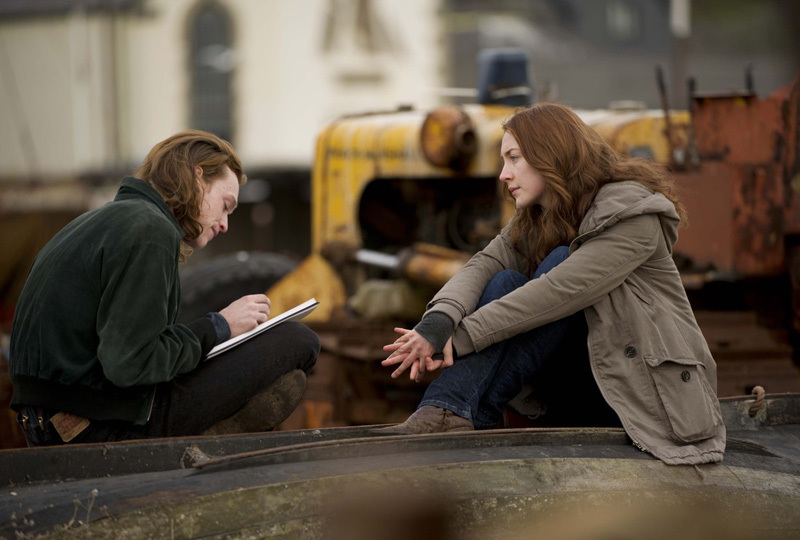
From there, the plot spirals out in all directions, as an angry and disbelieving Frank passes the confession to the adults at school; in a sharp meta twist, everyone assumes the vampirism is a metaphor, a cry for help from a stressful home, a nice skewering of the metaphor of vampirism itself; fodder for the dark comedy of Elinor trying to explain that no, she’s a vampire, no, an actual vampire, no, for real; and for one of the movie’s most chilling scenes, in which Elinor quietly lays out how exactly she operates. And as the Brotherhood shows up, Clara’s distraction from the fallout and Elinor’s anger (at Frank, at her mother) and ignorance mean they’re divided, and in trouble.
The third-act standoff is something of a dudebro ex machina; though Clara lacks any supernatural advantage but life, the movie is a testament to her maternal ferocity. It’s startling, then, when someone else saves the day, and while (again) the thematic idea of men being the ones who must secure change against misogyny could have been framed successfully, there’s not quite enough characterization behind either the climax or the slapdash denouement it ushers in, robbing the third act of some of the dread, dark humor, and quiet surrealism that made most of the movie so interesting even when it was not quite making sense.
Still, this is a film that uses vampirism to tap into cultural commentary, giving us a monster movie in which the women get to be the monsters, and whose proscribed punishment is painted as the arbitrary misogyny it is; for that, I’ll sit through a few plot-hole trips to Vampire Island (just as well, since the movie ends with one more). And while he can occasionally lay it on thick, in a genre that lives on laying it on thick, Jordan underscores the pathos of immortality with the everyday heartaches of family, neatly folding a lost Mike Leigh script into a seaside Gothic and stirring with a neon swizzle stick.
Among the recent rash of vampires, it’s refreshing, if only because the powers that be are not some traceable hierarchy where blood is destiny; the creative mythos here is staunchly about the self. The unseen supernatural on Vampire Island (I’m not going to stop calling it that) asks only that you are willing to kill your old self to survive. In Interview with a Vampire, the emphasis was on death; cheating it, causing it, living with it, watching others succumb to it, longing for it. In Byzantium, the opposite is true; Clara and Elinor’s fight is life, for themselves and for those they love. It’s slightly too oddball to be a companion piece, but that’s just as well; a B-movie mess this glorious might stand up better on its own.


